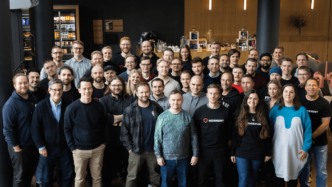Google is stepping up its cybersecurity game with the launch of automated AI alert and malware analysis tools aimed at easing the burden on security operations centers (SOCs). The tech giant revealed its latest plans at the Google Cloud Next conference, focusing on AI-powered agents designed to handle the flood of security alerts that overwhelm Tier 1 and Tier 2 analysts.
AI-Powered Agents Tackle Security Alert Fatigue
Security teams across industries are struggling to keep up with a constant stream of alerts. To address this, Google is deploying intelligent agents as part of its broader Google Unified Security platform. These AI tools promise to cut through alert noise and free up human analysts to concentrate on deeper threat investigations and faster response efforts.
Slated for a Q2 2025 preview, the first of these tools is an AI-based alert triage agent embedded in Google Security Operations. This tool automatically scans incoming alerts, gathers relevant contextual data, analyzes historical patterns, and generates verdicts on whether an alert is a real threat. Notably, the agent also delivers a complete history of its analysis, offering transparency into how it reached its conclusions.
Automated Malware Analysis Agent Enhances Threat Detection
The second AI tool focuses on malware detection and forms part of Google’s Threat Intelligence suite. Also arriving in Q2 2025, this agent is engineered to evaluate suspicious code in real time. It can run deobfuscation scripts, summarize its findings, and determine if the code poses a risk—all without human intervention.
By offloading time-consuming triage and analysis tasks to AI, Google is aiming to help SOC teams operate more efficiently and respond to threats faster than ever before.
Sec-Gemini v1: Google’s AI Brain for Cyber Defense
These new tools build on Google’s broader strategy of embedding AI into cybersecurity workflows. The company recently introduced Sec-Gemini v1, an AI model developed by its Mandiant threat intelligence unit. This model combines the capabilities of Google’s Gemini large language model with near real-time security data. Integrated with Google Threat Intelligence, the Open Source Vulnerability (OSV) database, and other in-house tools, Sec-Gemini is positioned to assist with both threat analysis and incident response.
Unified Security Platform Offers Centralized Threat Insights
Alongside its AI toolkits, Google officially launched Google Unified Security, a new platform that brings together security data from across networks, cloud services, endpoints, and apps into one streamlined interface. The platform offers auto-enrichment of threat data using insights from Mandiant, helping teams detect and respond to threats more quickly.
Additionally, Google introduced advanced data pipeline management features through a new partnership with Bindplane, which enables customers to transform, filter, and direct security data more efficiently.
Mandiant Threat Defense and Chrome Enterprise Get AI Boosts
Google is also enhancing its Mandiant Threat Defense offering, making it generally available with AI-assisted detection and response capabilities. This managed service provides organizations with a more proactive defense posture by using machine learning and expert guidance.
On the browser front, Chrome Enterprise Premium now comes with upgraded phishing protection powered by Google Safe Browsing. Users will benefit from enhanced data masking and browsing control features that also extend to Android devices.













